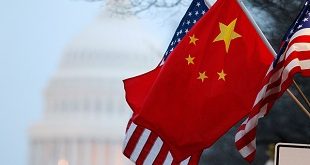
But Govt downplays impact of recent cancellations
Kampala, Uganda | RONALD MUSOKE | Uganda’s tourism industry has shown signs of recovery over the past three years, but the recent political heat that engulfed Kampala City and pockets of the country following the acrimonious by-election in the northwestern town of Arua has left the industry reeling, according to local industry players.
A number of high-profile Members of Parliament including Robert Kyagulanyi (Kyadondo East), Kassiano Wadri (Arua Municipality), Francis Zaake (Mityana Municipality) and Paul Mwiru (Jinja East) were arrested and allegedly tortured in August for allegedly throwing stones at President Yoweri Museveni’s convoy, a move that triggered protests demanding for their release.
Everest Kayondo, the chairman of the Association of Uganda Tour Operators (AUTO) said the political skirmishes in August,which is the peak season for tourist arrivals, had left a big dent on the country’s tourism sector as a number of tourists suddenly cancelled their trips.
“The recent happenings had a great impact on the economy because they were covered by both the local and international media. Once it was watched and read all over the world, the tourists were influenced,” Kayondo said.
Kayondo said the tourists also responded to their government’s travel advisories issued during the period and many who had intended to visit Uganda were influenced by these alerts.
Although some tour operators The Independent talked to declined to give figures, Amos Wekesa, one of the leading local players had earlier on told local media that his company, Great Lakes Safaris, had lost over US$300,000 in refund for already booked trips to Uganda.
Herbert Byaruhanga, a member of AUTO and vice president of the Uganda Tourism Association also told The Independent that he was affected “slightly.” He said he registered only four cancellations, but was quick to add that he could not link the cancellations to the political unrest.This, he said, is based on the fact that cancellations are common in the tourism industry.
Albert Kunihira, the Chief Executive Officer of Pearl of Africa Vacations told The Independent on Sept. 7 that he did not suffer any cancellations but he is certain the impact of the recent political skirmishes will be measured in the near future.
But Stephen Asiimwe, the executive director of the Uganda Tourism Board (UTB) told The Independent on Sept.10 that contrary to the AUTO concerns, this year has been Uganda’s best if tourist figures UTB is picking from the national parks and other tourist attractions are to be believed.
He said this is particularly true for gorilla permits which he says have been sold out for this year and the Uganda Wildlife Authority is already selling for 2019.
“This has never happened before,” he said.
“As far as I am concerned, tourists are safe in Uganda and tourism should continue working normally. We guarantee that tourists are safe in Uganda, the international airport is safe for arrivals, the national parks are safe and the other tourist attractions are all safe,” Asiimwe said, “We should not mix politics and tourism; Uganda is very safe,” he told The Independent.
This was not the first time local tour operators came out crying to the government due to lost tourism revenue.
In March, 2015, the Uganda Tourism Association (UTA) issued a similar plea saying over 90% of all bookings from Europe and the United States had been cancelled citing the Ebola outbreak in West Africa, terrorism and the passing of the Anti-Homosexuality law in Uganda. However, the Anti-Homosexuality law was later overturned in the courts of law.
As a result, the tour operators said, over 20,000 local tour operators, travel agents, safari guides and hotel operators were on the verge of closing business or losing their jobs.
Tourism remains Uganda’s leading foreign exchange earner.
Over the last 15 years, international tourism arrivals have more than quadrupled from about 250,000 in 2001 to over 1.3 million, last year amidst the country’s checkered political history.
In 2014, tourism, for the first time, became Uganda’s biggest export earner after it fetched $1.4 billion in 2013/14, up from $1.1 billion the year before, according to Bank of Uganda’s monetary policy statement that was issued in August that year.
Last year, the sector fetched the country about US$ 1.4bn (Shs 5.1 trillion) while the year before; close to US$1.35bn was earned from the industry.
Tourism experts have linked the sudden interest in Uganda as an attractive destination for tourists to the recent recruitment of three marketing firms that have been promoting Uganda in Europe and North America.
The tourism industry has also been boosted by glowing reports of Uganda’s attractions in international tourism catalogues. Uganda is, for example, regarded as Africa best destination for birders. The country is home to over 1,000 bird species, which account for 11% of the world’s total, and half of Africa’s known bird species.
But despite the recent surge in tourist numbers and the economic prospects in terms of revenue and jobs, the sector suffers from occasional disruptions— both natural and man-made. These, according to industry experts, have marred the country’s brand image and undermined its marketing efforts.
Researchers Tafadzwa Matiza and Olabanji Oni from the University of Limpopo in South Africa said in their recent research, “Managing the tourist destination: The case of Africa,” that the tourist destination image is becoming increasingly detrimental to the success of individual tourist destinations especially in Africa which often is a victim of negative global stereotypes and perceptions.
“Africa’s unfortunate image is an obstacle to the region’s competitiveness in the global tourism market, ascertaining the continent’s prolonged negative image and perceived risks of a tourist destination.”
Whereas global tourism is forecast to account for at least 1.6 billion travellers and over $2 trillion in tourist spending in the year 2020, Africa’s global share of tourist travellers in 2020 is anticipated to be between a conservative 5% and an optimistic 6.3% according to a 2013 UN World Tourism Organization report.
It is perhaps for this reason that African governments have begun to recognize the potential of the tourism industry as a driver of economic development. According to the World Bank, the tourism industry might be one of the fastest growing industries in the world but it is also one of the most competitive globally.
For Kayondo, the recent political skirmishes are frustrating the local industry. “If they (PR firms) are already doing a good job marketing the country and then things happen at home, these efforts will just be going to waste,” he said at a press conference on Sept. 3.
“Once we try to portray a good image abroad, then we should try to maintain it at home (because) once Uganda’s image is viewed as bad, no one will ever choose Uganda,” added Benedict Ntale, the vice chairman of AUTO.
Uganda’s long term development blue-print—Vision 2040—stresses that the country’s tourism sector has the potential to earn Uganda about $12 billion every year.
However, a 2012 World Bank study entitled: “Uganda Tourism Sector Situational Assessment: Tourism Re-awakening,” says the country is clearly not yet realizing its full potential as a tourism destination despite its unparalleled resource base comprising amazing natural features which include a unique flora and fauna.
Cuthbert Baguma, the former executive director of UTB told The Independent that it is important for stakeholders in Uganda’s tourism industry to understand that tourism is a global industry. He noted that before tourists decide to visit, their security and safety comes first.
UTB need to intensify marketing abroad
Going forward, Baguma says it is important for UTB to engage the international PR firms to re-assure potential clients about their safety, especially around Uganda’s tourist attractions.
“They should be able to tell potential visitors that yes, there might have been unrest in parts of the city, there was no business paralysis and that the tourist attraction spots are still safe.”
“It’s important to paint a true impression of the situation. It is important to acknowledge the incident, point out its extent, and point out the efforts undertaken to control it.”
“Beyond the denials, the UTB should engage the tourists at the airport to see what they felt about the incident,’ he said, “That would go a long way in pointing out the true impressions of the incident by getting independent feedback.”
In 2012, a CNN poll on consumers’ travel perceptions and behaviour trends asked respondents from more than 70 countries to identify key influencing factors in their decision making process before travelling to a place for leisure.
The CNN survey found that ahead of cost, safety and security were of greatest concern when choosing an international travel destination for more than two thirds of global respondents. Reputation of the tourist destination was also deemed important for travellers.
The survey also asked them how they gather information prior to travel. About 55% of international visitors surveyed said they relied on recommendations and information got from family, friends and colleagues.
CNN noted that with reputation being a key factor, tourist boards would clearly continue to have a vital role to play in shaping international perceptions to encourage tourism growth in countries that are strong on tourism.
Belinda Namutebi, a branding expert told The Independent early this year that, “Because we live in a globalized world, marketers of the country need to know that the product they are selling is the experience of Uganda.”
“This is even more so for those selling Uganda as a tourist destination,” she said. “Before tourists come, they research about the destination they intend to visit… and we are not in full control of what they (tourists) hear.”
 The Independent Uganda: You get the Truth we Pay the Price
The Independent Uganda: You get the Truth we Pay the Price



